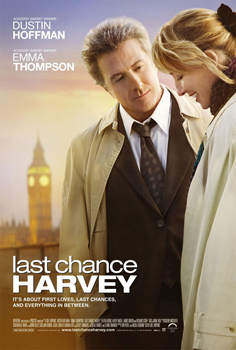The Catholic theological virtue of Hope describes our longing for eternal life and the kingdom of heaven, in which we rely not on our own strength, but on the help and grace of the Holy Spirit. Hope is the political sense is something far different, and was one of the twin towers of Obama’s successful presidential campaign.
No doubt, many Black people and White liberals were inspired by his victory, and the notion that a Black man could become president in our supposedly terribly racist country would be a source of hope. But why?
There were already many rich and successful Black individuals, who may not have become president, but have ascended to great heights nonetheless. Were they less of an inspiration? By the same token, how does the success of another person affect my success? The only example I can think of would be if you are a vendor for a small company (dominated by that magical individual) that gets very successful, and keeps you on, so you grow with them. A related example would be any other sort of “coat tail effect,” such as a brilliant employee raising up an entire company, or a star player raising up the team, coach, and owner.
However, we cannot forget that the office of president is largely symbolic, with few specific powers. As such, he should be able to inspire us. In fact, the office is so symbolic that historians make the absurd mistake of not evaluating a president’s term in its own time frame, but rather wait for the “verdict of history” to come in. Consider how nonsensical this would be if applied to anyone else.
Will we view the feckless Wall Street titans, like Merrill Lynch CEO John Thain—who was kicked out by Bank of America, after he paid out huge bonuses to execs and redecorated his office for over $1 million, in the wake of the firm losing more than $27 billion in the year—any differently 50 years from now?
Yet, like it or not, Obama is a symbol. Will this be sufficient to rally the nation? My take is that it will not, especially if his actions prove to be as empty and superficial as his words. As it is, how much hope is there for those new victims of state-funded abortions overseas, as reinstated by our dear leader?
Commentator Robert Tracinski had a few choice observations about Obama’s inaugural address:
- Obama boldly came out in favor of “hard work and honesty, courage and fair play, tolerance and curiosity, loyalty and patriotism”—the most superficial and anodyne list of traditional American values one could possibly compile.
- It is basic choices between opposing principles that Obama is telling us are “stale” and “no longer apply.” And if you think that ideas and principles still matter, you’re a cynic!
- Thus, Obama begins his administration by declaring that he will run the government while rejecting any overarching ideas and principles regarding the proper role and scope of government action. He starts by telling us, in effect, that he has no idea what he is doing.
As to change, there sure do seem to be lots of Clintonites brought back for round two, along with a treasury secretary designate who doesn’t like paying his taxes; a CIA director designate who have never been involved in intelligence; and a Washington insider apparatchik (Daschle) who, like George McGovern before him, mastered—for a time—the art of getting elected in a tiny state. Daschle then re-emerged as “not” a lobbyist, but rather was a special adviser in a K Street law firm.
One thing we do know from history is that Keynesian government spending to try to get us out of a bad economy does not work. When FDR tried it, things only got worse, and it took the austerity and forced defense build-up of World War II to bring us out.
As columnist Ross Mackenzie noted, in an analysis of Obama:
“He could be, likely will be, a transformational president. In his ideological predilections and in his appointments, one finds key indicators of what sort of transformation—what sort of change—he has in mind. They don’t make for easy sleeping. Goodwill for Obama, and high hopes for his presidency? Of course. Still, for the nation, the signs provide little comfort. Maybe that is because not all change is for the better. Going to hell is a form of change, too.”
 A simple story, plenty of outdoor London scenes, and good perfs by the two leads make this one a pleasant diversion. Sure, there are some flaws, but in films like this—where you want to be charmed—you don’t care.
A simple story, plenty of outdoor London scenes, and good perfs by the two leads make this one a pleasant diversion. Sure, there are some flaws, but in films like this—where you want to be charmed—you don’t care.